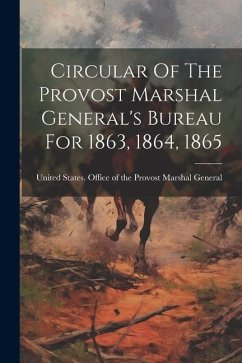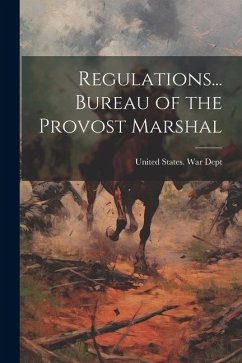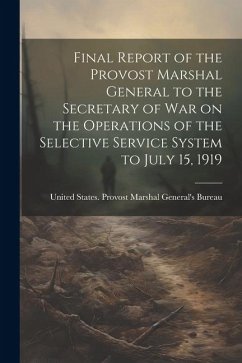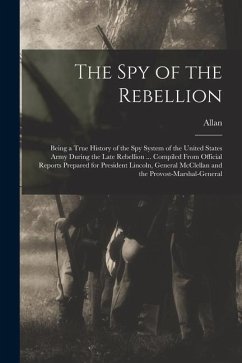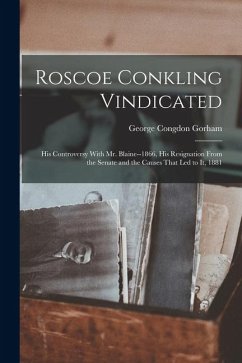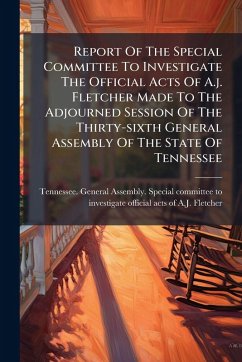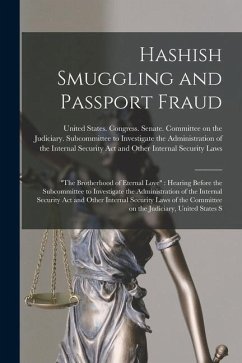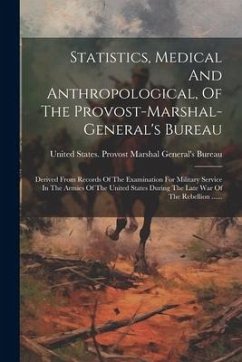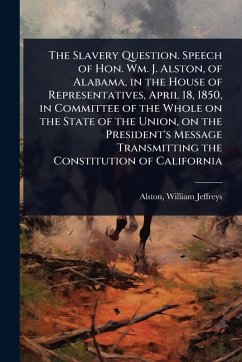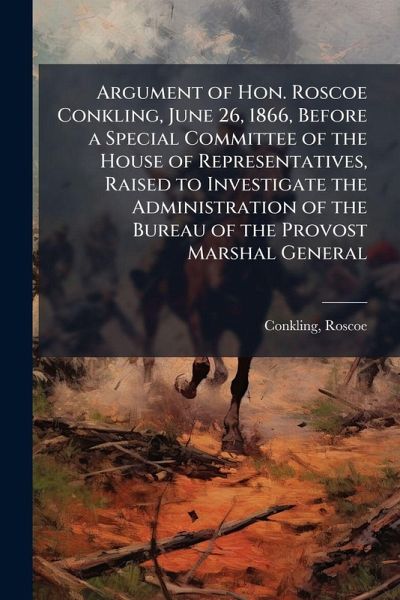
Argument of Hon. Roscoe Conkling, June 26, 1866, Before a Special Committee of the House of Representatives, Raised to Investigate the Administration of the Bureau of the Provost Marshal General
Versandkostenfrei!
Versandfertig in über 4 Wochen
15,99 €
inkl. MwSt.

PAYBACK Punkte
8 °P sammeln!
This is the argument presented by Hon. Roscoe Conkling on June 26, 1866, before a special committee of the House of Representatives. The committee was formed to investigate the administration of the Bureau of the Provost Marshal General in the aftermath of the Civil War. Conkling's address provides valuable insights into the political and administrative complexities of the Reconstruction era, offering a contemporary perspective on the challenges of managing a federal bureau responsible for conscription and military law enforcement during a time of national upheaval. "Argument of Hon. Roscoe Co...
This is the argument presented by Hon. Roscoe Conkling on June 26, 1866, before a special committee of the House of Representatives. The committee was formed to investigate the administration of the Bureau of the Provost Marshal General in the aftermath of the Civil War. Conkling's address provides valuable insights into the political and administrative complexities of the Reconstruction era, offering a contemporary perspective on the challenges of managing a federal bureau responsible for conscription and military law enforcement during a time of national upheaval. "Argument of Hon. Roscoe Conkling, June 26, 1866..." serves as a primary source for understanding the debates and investigations that shaped the post-Civil War United States. This work has been selected by scholars as being culturally important, and is part of the knowledge base of civilization as we know it. This work was reproduced from the original artifact, and remains as true to the original work as possible. Therefore, you will see the original copyright references, library stamps (as most of these works have been housed in our most important libraries around the world), and other notations in the work. This work is in the public domain in the United States of America, and possibly other nations. Within the United States, you may freely copy and distribute this work, as no entity (individual or corporate) has a copyright on the body of the work. As a reproduction of a historical artifact, this work may contain missing or blurred pages, poor pictures, errant marks, etc. Scholars believe, and we concur, that this work is important enough to be preserved, reproduced, and made generally available to the public. We appreciate your support of the preservation process, and thank you for being an important part of keeping this knowledge alive and relevant.



